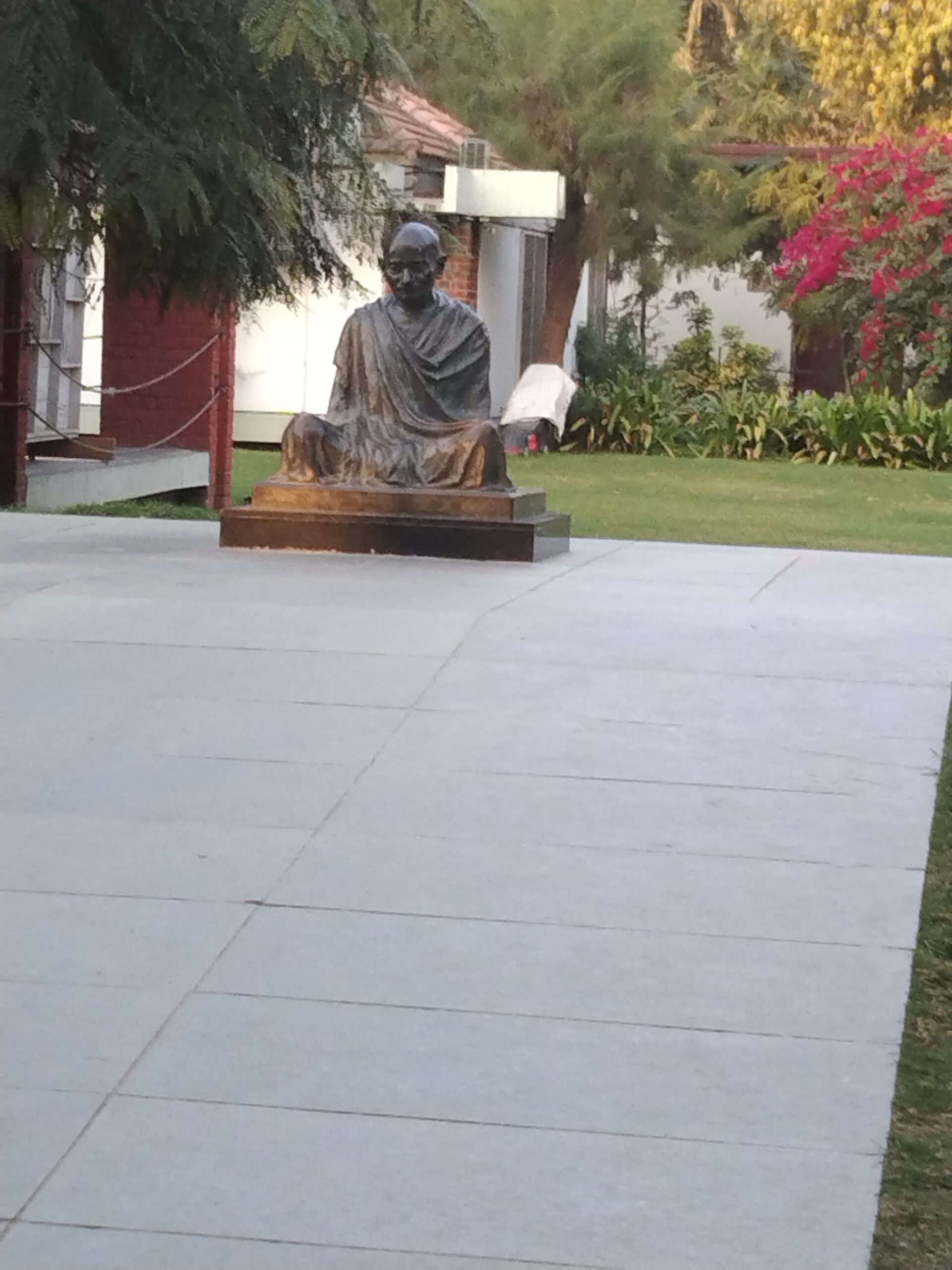Though dejected by the violence associated with the partition, Mahatma Gandhi remained a hopeful man to his last day coming up with new and original ideas to build a budding nation. A day before his assassinaton on January 30, 1948 Gandhi had stated the following:
He wanted the Indian National Congress to be disbanded as he felt it had outlived its use.
“Though split into two, India having attained political independence through means devised by the Indian National Congress, the Congress in its present shape and form, i. e., as a propaganda vehicle and parliamentary machine, has outlived its use,” he noted in the Draft Constitution of the Congress on January 29, 1948, a day before he was assassinated.
Instead, he wanted to transform the All India Congress Committee into a Lok Sevak Sangh where every panchayat of five adult men or women being villagers or village-minded shall form a unit and two such contiguous panchayats shall form a working party under a leader elected from among themselves. When there were one hundred such panchayats, the fifty first grade leaders were to elect from among themselves a second-grade leader and so on. The first-grade leaders, meanwhile working under the second-grade leader and parallel groups of two hundred panchayats, shall continue to be formed till they cover the whole of India, each succeeding group of panchayats electing a second-grade leader after the manner of the first. All second-grade leaders were to serve jointly for the whole of India and severally for their respective areas. The second-grade leaders may elect, whenever they deemed necessary, from among themselves a chief who will, during pleasure, regulate and command all the groups.
He also laid down personal guidelines for the Lok Sevak Sangh which include that they be tetotallers, Khadi wearers, be in touch with every villager in his jurisdiction, keep a record of his day-to-day work, organize the villages so as to make them self-contained and self-supporting through their agriculture and handicrafts, educate village folk in sanitation and hygiene and take all measures for prevention of ill health and disease among others.
A partition-victim asked Gandhi to disappear ‘as he had already done enough harm’
Gandhi’s response: “I asked him where he wanted me to go. He said that I might go to the Himalayas. I asked why I should go to the Himalayas merely because he wished it, when there were many who wanted me to stay. There are many who praise me and there are others who abuse me. What am I to do? I can only do as God bids. You may say that you do not believe in God. But then you must allow me to go my way. God is the help of the afflicted. But an afflicted person is not God. When I claim that every woman is my own sister or daughter, then her suffering becomes my suffering. Why do you presume that I do not understand the sufferings of the refugees? Why do you presume that because I am a friend of Muslims I am an enemy of Hindus and Sikhs? I cannot run away because anyone wants me to run away. I have not taken to service at any one’s bidding. I have become what I have become at the bidding of God. God will do what He wills. He may take me away. I shall not find peace by going to the Himalayas. I want to find peace in the midst of turmoil or I want to die in the turmoil. My Himalayas are here.”
His thoughts on farmers
“Someone came to see me today. He mentioned peasants. I said if I had my way our Governor-General
would be a peasant; our Prime Minister would be a peasant. In my childhood I learnt a poem which says “O farmer, you are the king, the master of the whole world”. What would we eat if the peasant did not produce food? But today we have made him a slave. What can a peasant do? Must he acquire academic degrees such as B.A. and M.A.? If he does that he will be ruined. He will be no more good for wielding the pickaxe. If the man who produced food grain out of the earth becomes our Chief, our Prime Minister, the face of India will change.”
He was saddened by attitude of people in Madras (now Chennai) facing a food crisis
“There is a scarcity of food in Madras. A representative of the Madras Government had come here to plead with Shri Jairamdas that he should make foodgrain available for Madras. This attitude of the people of Madras saddens me. I want to point out to them that they can find enough things to eat in their own province such as groundnut, coconut and various other things. They also have plenty of fish which most of them take. What need is there for them to go out and beg? It is not right for them to insist on rice and that too polished rice which has all its food value removed or to insist on wheat in place of rice. They can mix groundnut flour or coconut flour with rice flour and thus keep the wolf from the door. What they need is self-confidence and dedication. I know the people of Madras quite well. I had with me in South Africa people drawn from all the linguistic areas of the Province. During the satyagraha march, they were given a pound and a half of bread and an ounce of sugar each day. But they surprised me when on our striking camp they would pick out some edible greens or some other thing and cook it singing away in great delight. How can such resourceful people ever feel so helpless? True we were all coolies. But then in honest work lies our freedom and the satisfaction of all our basic needs.”


